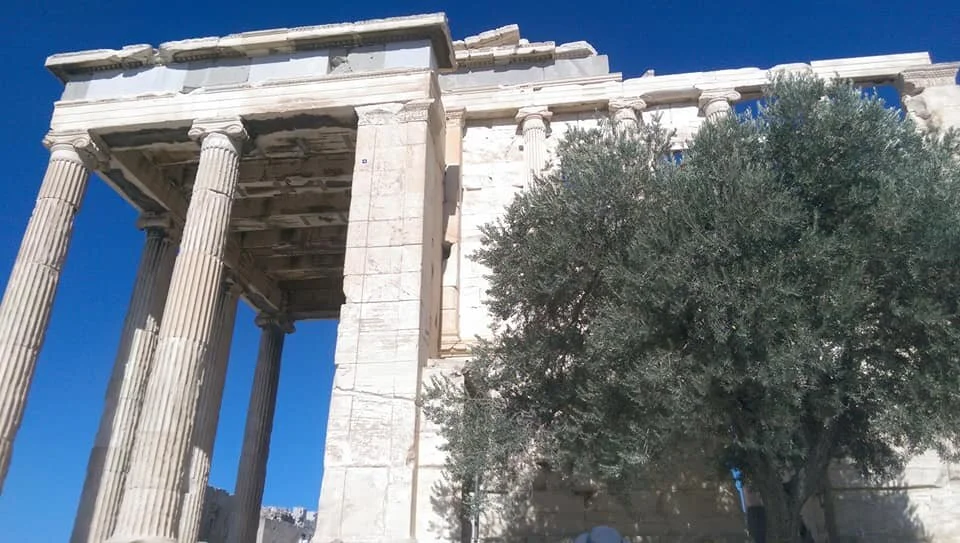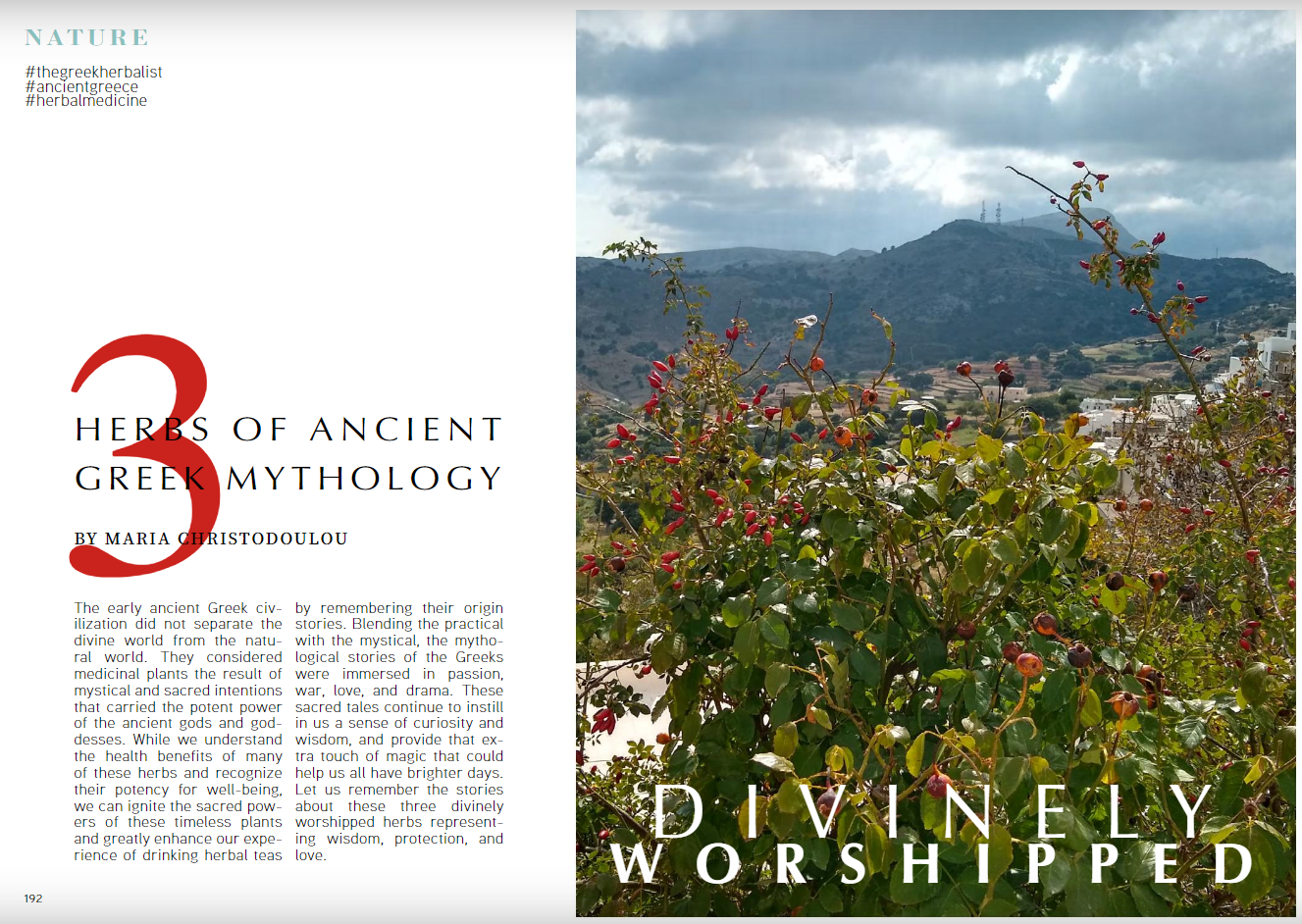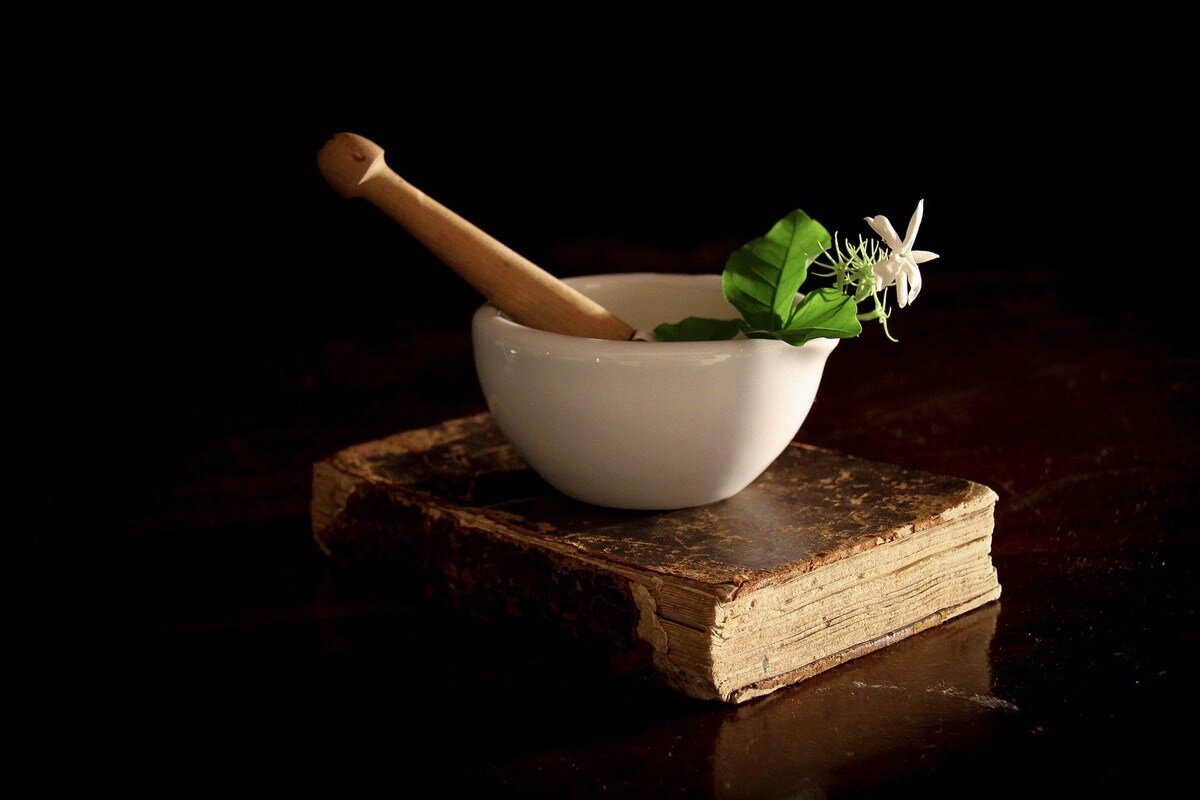The Herbal Column
Modern Musings on Ancient Greek Herbalism
Listen in: The Pomegranate Motif in the Ancient Mediterranean
Throughout history, plants have evoked the curiosities of the human imagination. Listen in to a three-part series exploring herbal motifs in the ancient Mediterranean region, featuring the sinful fig leaf, the sensual rose flower, and the good luck pomegranate fruit.
Listen in: The Rose Motif in the Ancient Mediterranean
Throughout history, plants have evoked the curiosities of the human imagination. Listen in to a three-part series exploring herbal motifs in the ancient Mediterranean region, featuring the sinful fig leaf, the sensual rose flower, and the good luck pomegranate fruit.
Listen in: The Fig Leaf Motif in the Ancient Mediterranean
Throughout history, plants have evoked the curiosities of the human imagination. Listen in to a three-part series exploring herbal motifs in the ancient Mediterranean region, featuring the sinful fig leaf, the sensual rose flower, and the good luck pomegranate fruit.
Myths & Medicine: Plant Walk in the National Garden
ATHENS – From myths to medicine, plants in Greece hold a plethora of ancient stories and knowledge for us to explore. These timeless plants were the inspiration behind countless mythological tales and medicinal recipes that both entertained and healed our ancient Greek ancestors for thousands of years. Join The Greek Herbalist this summer in Athens for a plant walk through the scenic National Garden for an adventure to ancient Greece.
‘Till the Last Drop: Herbal Wine in Ancient Greece
The ancient Greeks drank wine for breakfast, lunch, and dinner. Although always diluted, wine was not only a satisfying beverage, but also a nourishing and healing tonic. We will explore the herbs that were infused in wine, the common ailments of the day, and the religious traditions with Dionysus, the much celebrated god of wine. The recorded presentation is available through registration with the International Herb Symposium.
Mediterranean Flavors: Exploring Herbal Medicine in Ancient Greece, Rome, and Egypt
The ancient Mediterranean region was rich in vibrant colors, flavors, and remedies that helped keep the civilizations of Greece, Rome, and Egypt thriving for thousands of years. We will explore ancient medical texts in each of these empires, the influence of war and trade on herbal medicine, and popular medicinal and culinary recipes used for health and healing. This recorded presentation is available through registration with the International Herb Symposium.
Traditional Greek Recipes
The Mediterranean diet is well-known for its curative properties. In Greece, there are countless variations on traditional recipes, but the basics of fresh and flavorful ingredients remain unchanged. These recipes infuse the rich aromas of the wild countryside with the welcoming feeling of the kitchen hearth.
The 1st Panhellenic Conference of Traditional Greek Folk medicine
As a speaker for the 1st Panhellenic Conference of Traditional Greek Folk Medicine, this presentation explores ancient and modern herbal practices of popular herbs in Greece. Exploring the theme that “custom is king,” a cultural continuity of herbal customs − from ancient to modern Greece − provides insight into how plants can teach us timeless lessons about history, health, and the persevering character of nature itself.
From the Herbal Academy: Ancient Mediterranean Recipes: Favorites from Greece, Rome, and Egypt
Excerpt from the Herbal Academy: “The ancient Greeks, Romans, and Egyptians, who lived more than two thousand years ago, bequeathed to us traditional Mediterranean recipes and remnants of their favored meals. By studying the eating habits of these wondrous civilizations through surviving texts, artworks, and archaeological remains, we can learn about their sacred customs, the diversity of animal and plant species in their environment, the diseases they suffered from, and the natural remedies they crafted to heal themselves.”
Listen In: The Gold Road Goes to Greece
Listen in to The Gold Road Goes to Greece, a conversation with Aviva Skye Tilson of Apis Apotheca and Marcie Mayer of the Acorn Oakmeal Initiative, as we talk about the value of acorns and oak trees in both ancient and modern society.
Ancient Rituals in Modern Beauty
Throughout the ancient Greek world, the oak tree symbolized holiness, unrivaled strength, and fierce grace. Learn how the Ancient Oak Forest Mask, made by Apis Apotheca using acorn flour from the Acorn Oakmeal Initiative in Greece, infuses sacred mythological powers with modern skin nutrition.
Listen In: Unsaid Conversations Ep.19 - Modern Plant Medicine
Listen in to Unsaid Conversations Ep.19 - Modern Plant Medicine as I speak with Anna Miller about the practice of herbal medicine in ancient Greece and how it still applies today.
From The Mediterranean Lifestyle: 3 Herbs of Ancient Greek Mythology
As featured in The Mediterranean Lifestyle, Divinely Worshipped: 3 Herbs in Ancient Greek Mythology tell us about herbs representing wisdom, love, and protection, all of which we can use a bit more of these days!
From The Herbal Academy: De Materia Medica - The Ancient Text That Changed The World
Excerpt from The Herbal Academy: “There is a grand mystery and pleasure in reading ancient texts that can still fulfill our curiosities about the human experience. Writings about herbalism are no exception, as they give us a sense of how our ancestors lived, survived, and interacted with the natural world around them. De Materia Medica, Latin for “On Medical Material” is a surviving text from the first century written by Pedanius Dioscorides (c. 40-90 CE), a Greek medical botanist and physician who served in the Roman army. His five-volume manuscript describes approximately 600 plants for more than 1,000 traditional medicines. Centuries after it was written, Dioscorides’ celebrated herbal reference would become the basis of European and Western pharmacopeia.”
Listen In: Herbs in Greek Myths
Listen in to Herbs in Greek Myths, as published on the HerbRally podcast.
Herbal Medicine in the Fantastical Myths of Ancient Greece
Achilles applied a poultice of yarrow to the wounds of his fellow soldiers. Daphne was rooted into a bay laurel tree for protection against the god Apollo. Odysseus held a mullein stalk to defend himself against Circe's mystical powers. These ancient Greek myths blended passion, pain, victory, and defeat with a touch of ancient sorcery. As master storytellers, the ancient Greeks created fantastical stories that have riveted audiences for thousands of years. Let us explore some of these myths and the plants that worked alongside the divine gods and goddesses of our ancient world.
From The Herbal Academy: Botany Beginnings - Who Was Theophrastus?
Excerpt from The Herbal Academy: “Approximately 2,300 years ago, a time which we can somewhat imagine through the marble monuments still standing and the relatively few parchments that have survived, a person named Theophrastus (c. 370 BCE – c. 287 BCE) reportedly wrote 227 books about animals, trees, shrubs, fruits, and flowers. Although he wasn’t the only scientific writer at the time, nor the first to study plants, he would become known as the “father of botany” because his descriptive writings, specifically his surviving book, Enquiry into Plants (Historia Plantarum), helped create a new frontier in scientific botanical terminology.”
From The Herbal Academy: The Four Humours of Ancient Greek Medicine
Excerpt from The Herbal Academy: “Herbalism is an ancient practice with thousands of years of historical applications. Today, the well-recognized ancient traditions of Ayurveda and Traditional Chinese Medicine remain instrumental as effective herbal practices. Equally important is understanding and recognizing the contributions of ancient Greek herbalism, namely the four humours. Although these concepts are no longer mainstream theories, they continue to provide an underlying foundation to modern medical and herbal practices.”
Medicinal Herbs in Ancient Greece
Lemon balm, St. John’s wort, oregano, and mastic. What medicinal powers do these herbs have and how did the ancient Greeks use them for their own health?
Everlasting Traditions in Herbal Medicine
The practice of herbal medicine in antiquity was not separate from everyday living. It was an integral part of every custom, celebration, and recipe throughout the ancient world.
A story for every image
Visit The Greek Herbalist on Instagram to learn more about ancient herbs, herbalists, and practices.








































